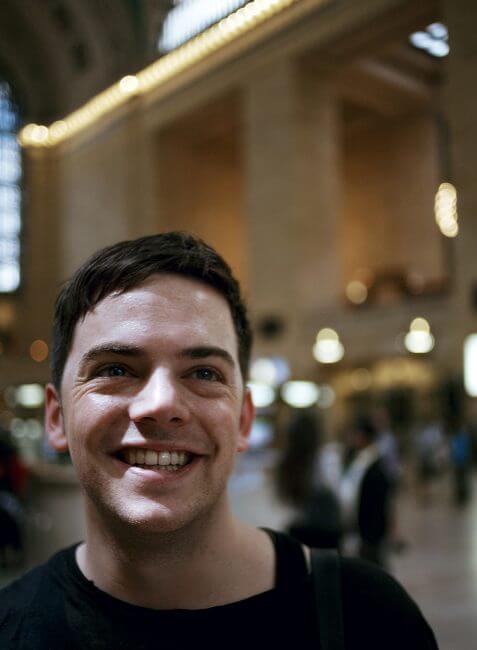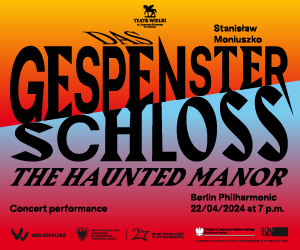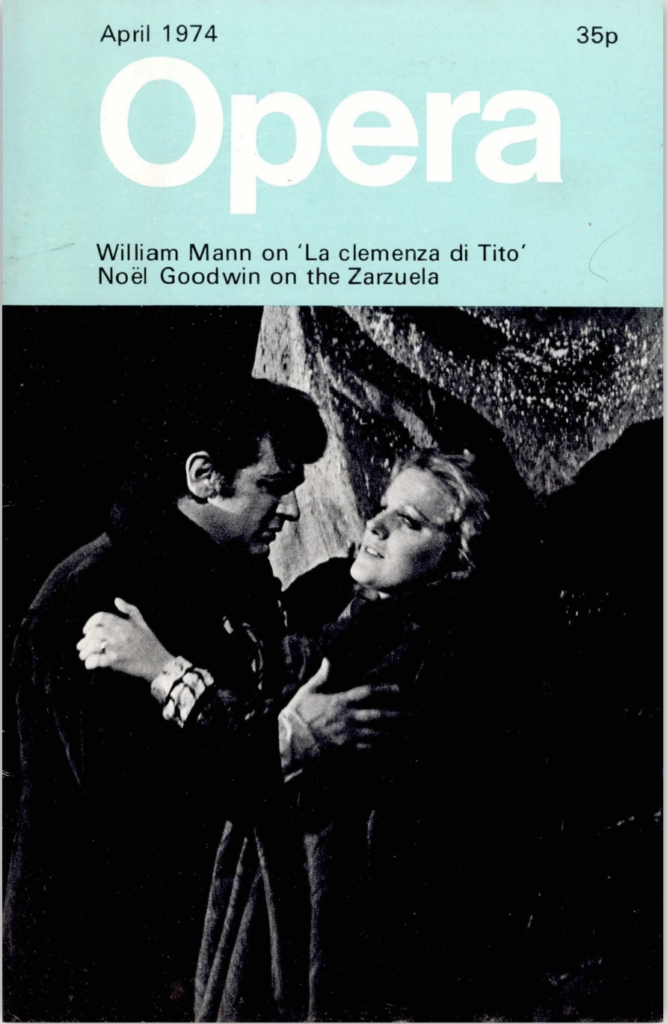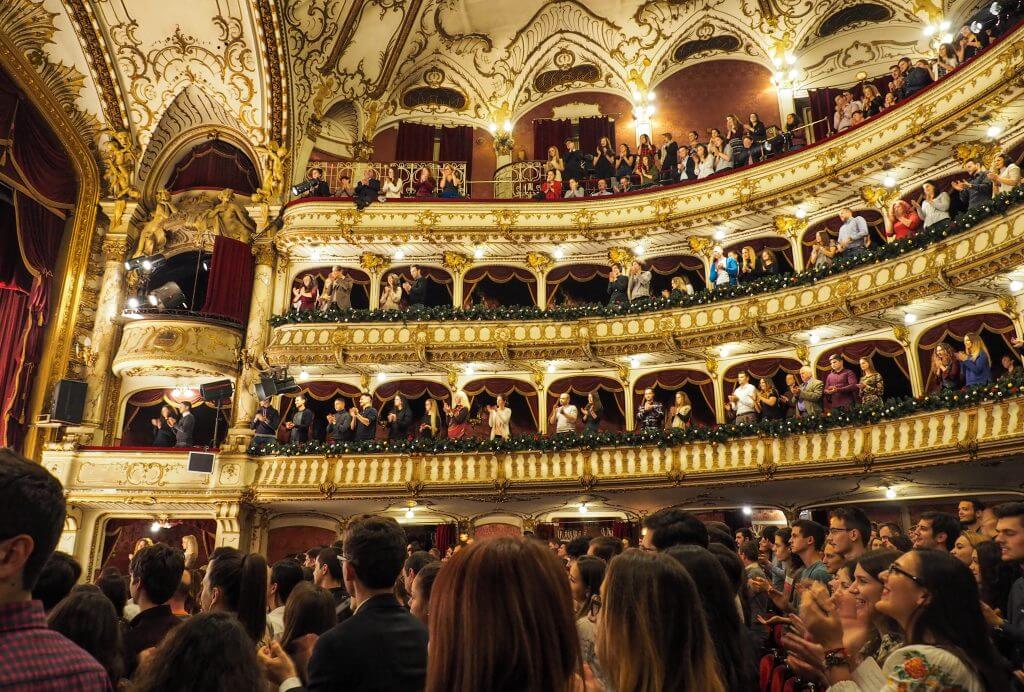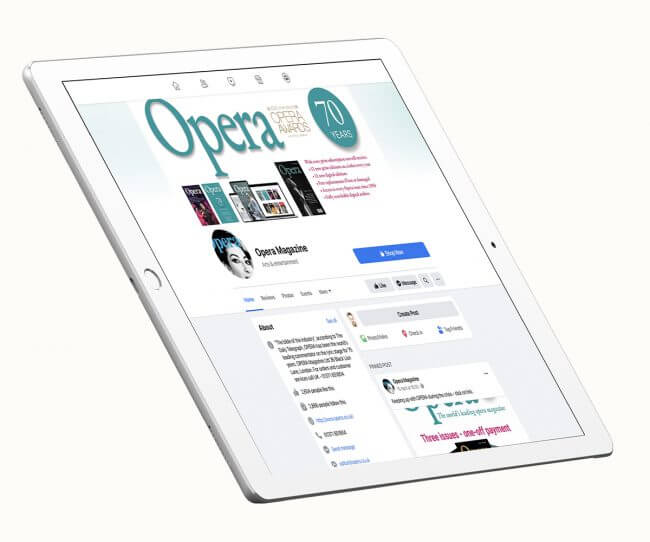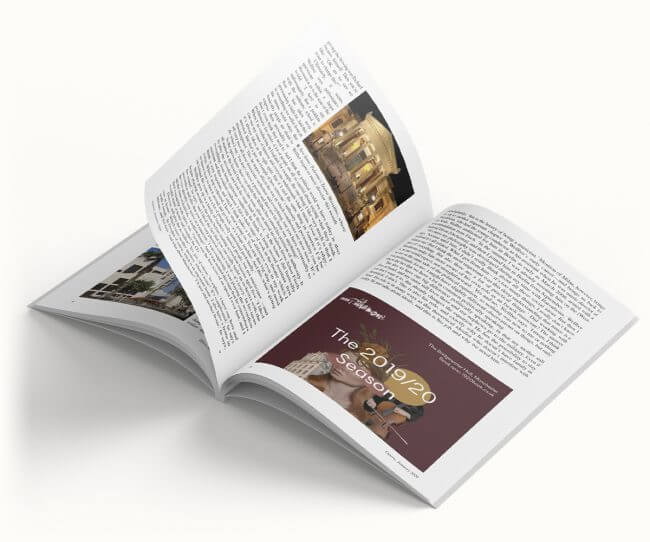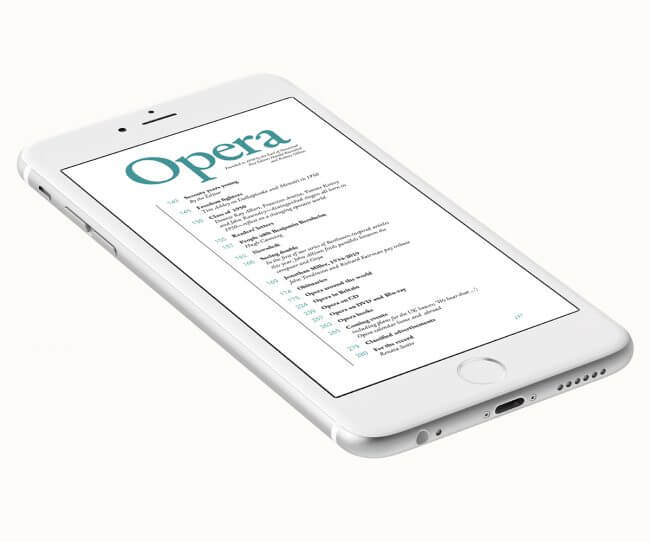Boy Wonder
May 2011 in Articles
Nico Muhly talks to Kristin Cowdin
The circuitous streets of the DUMBO (Down Under the Manhattan Bridge Overpass) neighbourhood on Brooklyn’s waterfront edge were dark and mostly empty on a February evening. But inside St Ann’s Warehouse a capacity crowd, eclectically and casually dressed, was migrating from the lobby into the convertible performance space. It was the second of three weekend performances entitled Tell the Way, in which the composer Nico Muhly shared the bill with a motley assembly of musicians: the Brooklyn Youth Chorus; guitar, banjo, fiddle and sitar players, who all occasionally sang; and the American Contemporary Music Ensemble. The evening’s common thread was spun from narratives of travel: American folk sources, prayers for the Royal Navy, early colonial diaries, Mandeville, Herodotus and Marco Polo.
Promotional materials for that concert used the single word ‘ubiquitous’ to describe the American composer, who played keyboard instruments and offered interjections throughout the performance. The description certainly seems true—and Muhly is no stranger to travel these days. This month, the lights will be brighter in St Martin’s Lane than in Brooklyn as English National Opera premieres Two Boys, Muhly’s first opera, with a cast featuring Mary Bevan, Susan Bickley, Nicky Spence and Robert Gleadow. It is a formidable next step for the 29-year-old composer, whose catalogue already encompasses a variety of genres: choral music, chamber compositions of all constructions, song cycles, orchestral works and ballet music, premiered and performed by organizations including the New York Philharmonic, the Los Angeles Master Chorale, eighth blackbird, the Britten Sinfonia and the Paris Opéra Ballet. He also teams up with indie rock artists such as Björk, and counts the score of the Best Picture Oscar nominee The Reader among his film credits.
Following the ENO premiere of Two Boys it will come to the Metropolitan Opera in the autumn of 2013, in a co-production between the two frequently collaborating companies. The opera began as a product of the Metropolitan Opera’s Lincoln Center Theater Opera/Theater Commissions programme and, along with its creator, is championed by Peter Gelb, the Met’s general director. Gelb first became aware of Muhly while still president of Sony Classical, via the composer’s 2005 song cycle Elements of Style, based on the timeless grammar manual. But it was years later, and by chance, that Gelb first met the composer about whom he says, ‘All you have to do is listen to a few bars of his music and you know there’s an incredible gift and talent there’. One of earliest projects of the commissioning programme was Prima Donna, by the popular music sensation Rufus Wainwright. Although it was never staged at the Met, Gelb recalls: ‘Rufus had called upon Nico to help him with some synthesized orchestrations and at one of these early sessions when we were helping Rufus with his piece. He came and did a presentation and I saw Nico playing piano and synthesizer.’ A seedling of an opera had been in the back of Muhly’s mind for some time, but he had kept it there: ‘With opera,’ Muhly says, ‘I think it’s always more polite to be asked to write one.’ And he was. Gelb and his colleagues had kept tabs on him, listening more and attending what Muhly calls ‘a serendipitous run of good shows in New York’, and invited him to a meeting. When prompted, Muhly brought a couple of ideas forward, including one story he had encountered some time before via BBC News.
Two Boys brings a drama of real crime entrenched in the trappings of modern society to the operatic stage. Following the attempted murder of a child in Altrincham, a small town near Manchester in the UK, a multi-layered story unfolds in a charged, online world, teeming with the pretence, friendship, danger and eroticism that the internet seems to encourage. To Muhly, the case proves ‘enormously operatic’, as he claims that the plot is akin to that of many Mozart operas. ‘It is people crossing gender and class lines using disguise for love. And it happens to be digital.’ John Berry, ENO’s artistic director, finds the subject matter timely: ‘This sort of dark, Faustian world of the internet is invading everybody’s lives. And this particular opera will explore that in a very specific way.’
When considering art, artists and their themes, however, Muhly does not easily register a division between the contemporary and the repertoire of years past. Raised in Vermont and Rhode Island, he is the progeny of creative parents. ‘My mom is an artist and my dad is a documentary film-maker. My mother’s brother is a composer also; he writes a lot of wind-band music.’ In this environment, there was no line of demarcation between ‘dead-people art and living-people art … I just didn’t grow up with that distinction, because I grew up with artists in the house. There were my mom’s friends and they’re artists too, and I’d go to the show and the person who made the thing was there. And it was fun.’
In those early years, ‘the compositional process started as sort of a graffiti on older works’. Beginning his musical journey as a boy chorister and piano student, at which he claims he was ‘OK, but not great’, his first ideas of composition stemmed from the occasions on which his thoughts deviated from the repertoire he was performing and practising: ‘What if we slowed this down or added this weird note?’ And the idea of a different path of musicianship began to take shape. He remembers in his teenage years a phase of voracious listening, during which he found his way to Nixon in China and The Death of Klinghoffer. ‘I grew up in such a major way on the Adams operas; I can’t tell you how large they loom.’ But much earlier music claimed equal attention. ‘I loved and still love Monteverdi.’
New York City held allure for him and is where he now makes his home. The city was one of the deciding factors in his decision to attend Columbia University and the Juilliard School, where among his teachers was the composer John Corigliano, with whom he is still in close contact. ‘John’s approach was amazing because it was essentially “Let me help you make the best of what you’re working with”.’ He laughs, recalling another benefit he drew from Corigliano’s instruction: ‘He resists the sort of pale minimalism that I so happily embraced … the biggest thing that John can offer you is the sense of the emotional architecture of a piece, how to shape a huge landscape.’ While still a student, he found work as a conductor and editor, in particular as a conductor for Philip Glass, a first and perhaps unintentional step that paved the way for his entrée into the world of film scoring and future shared management.
During those years at Juilliard, Muhly first encountered several of the musicians with whom he still collaborates today, and laid more of the foundations of his career in what he admits was ‘sort of a sideways way’. He committed himself to the resources he had in his friends, writing music for them and whatever instruments they played. ‘No money changed hands; it was just “Let’s do this project together”. And so by the time I left school, I had a short list of people who were championing my work, by neither accident nor design.’ Testifying to the longevity of those creative, professional relationships, he summons up easy examples from the recent Tell the Way concert: the violist and cellist are among his oldest friends, and he knows all of the percussionists from school.
With Two Boys, he adds to his growing circle of collaborators. As librettist, Craig Lucas, whose plays he had read and whose movies he had seen, was the Met’s top choice: the opera company brokered a meeting and days later he contentedly found himself as one of two ‘screaming crazy people in some organic restaurant’. By similar design, he was connected with Bartlett Sher, the Tony Award-winning director whose migration to opera includes the recent productions of Le Comte Ory, Il barbiere di Siviglia and Les Contes d’Hoffmann at the Met. This early matchmaking stems from Gelb’s desire to allow the composer ‘to work on the dramatic side as well as the musical side, so that he’s not writing something in limbo’.
Gelb’s modus operandi of fostering collaboration between the artistic players from the onset will, one hopes, prove fruitful onstage, but it has already helped to guide the new opera towards a different path. Muhly admits, ‘The character I thought I was most interested in, at the very beginning, before Craig even started working on the libretto, was the sort of child-mastermind, who, in my head, functions as a sort of composer. But then, as the piece took shape, we all realized that the detective was actually the more interesting role because we get to watch her experiencing what it’s like to go online for the first time, whereas for everybody else this shadow world is kind of a fait accompli.’ It is a format modern audiences might recognize from television crime dramas, ‘a classic police procedural where the crime itself is more of a framework for us to understand the detectives and their work’.
Muhly describes the music for the detective as ‘twisted, dealing in clusters and polytonality’; it diverges from the simpler structures used for the rest of the cast. ‘The older boy has one set of lyrical material and the rest is sort of teen bluster. The younger boy, with whom we don’t really get involved until much later in the opera, has a piece of material that has its roots in the “Moonlight” interlude from Peter Grimes.’ Muhly describes his discovery of Britten from that teenage listening period as something that ‘for me went between opera and non-opera work; it’s a total difference in emotional architecture’. He feels the presence of the British composer hovering above Two Boys. ‘I thought very long and very hard about the last six bars of Death in Venice when constructing the material that connects all of the choruses.’ And the music that the younger boy sings finds roots in his own childhood: ‘explicitly, out of the Anglican plainchant psalter’. But he quickly adds that ‘it’s all so fugued and bound up in my own predilections that it’s hard to describe’.
The magnitude of the responsibility of composition weighs upon Muhly. ‘There’s a weird misconception about composers. Getting a commission is not like winning Miss America. And there’s no [spoken in a comically high, caricature-ish voice] “Oh, my God! … I’d like to thank the Academy …” It means that you’re about to commit an enormous amount of time and energy to make something exist that does not exist now. To get a commission from a big organization, it’s an honour, but for me, it’s a solemn honour.’
Along with honour and artistry, he also realizes the practical aspects of the genre, and has strong opinions. ‘I made it very clear to everybody that I was in no way interested in running a minute longer than two hours of music.’ While he recognizes the need for certain works of epic and consuming proportions, in his piece ‘I want there to be an intermission in under an hour, and a glass of Campari and soda. And then you have the second half and you’re out by ten.’ In the current age of narrowing budgets, this conscientiousness could serve him well—companies are always forced to look at bottom-line expenses when considering titles and productions. But he maintains humour while being pragmatic about his first opera. ‘When it was clear that we were going ahead with the Met, they said, “Look, you can have children, animals or flying, but not all of them.” I think it was meant to be a joke … But I said, “OK, great. I’ll take children”,’ and they became the title characters of Two Boys.
Even before his first opera has hit the stage, Muhly has moved on to another. Dark Sisters is a chamber opera, ideal for slightly more intimate stages. The subject matter of Stephen Karam’s libretto is, once more, ‘ripped from the headlines’, developed almost by chance during discussions with Gotham Chamber Opera’s artistic director Neal Goren. Muhly recalls, ‘He had been saying to me, “You know the perfect chamber opera has six women and one man”.’ The composer’s quick retort proved more telling than perhaps intended: ‘Oh, great. So, it’s like a polygamist family.’ The comment was timely due to the recent headlines about a raid on the Yearning For Zion Ranch—the Texas home of members of the Fundamentalist Church of Jesus Christ of Latter Day Saints—and the publication of books by former female members who fled the extremist sect. The opera, which chronicles a woman’s precarious escape, was entirely cast before Muhly wrote a note, allowing him to compose for the voices of the singers who would workshop and eventually perform the piece. Gotham Chamber Opera will premiere Dark Sisters in November, and performances by the Opera Company of Philadelphia are scheduled for next June.
The rest of 2011 promises first hearings for more of Muhly’s work. The Ravinia Festival has commissioned The Edge of the World, a concerto for five pianos to be performed by The 5 Browns in August. The all-male vocal ensemble Cantus will give the first performances of Luminous Body with the Saint Paul Chamber Orchestra in November. And also in November, the Dublin-based Crash Ensemble will premiere a new commission.
Ubiquitous, indeed.



